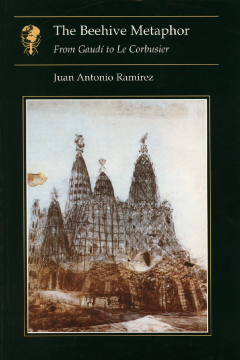
Additional Information
Book Details
Abstract
Since time immemorial, bees have been associated with all manner of virtues. The beehive has served as the model for an ideal society, while honey and wax have provided the basis for countless positive metaphors of sweetness and productivity. The natural architecture created by bees in their hives can be said to approach perfection. In The Beehive Metaphor, Juan Antonio Ramírez shows how this lucid modular structure had a considerable influence on the architects and artists who founded the Modern movement. Models from both traditional and "modern" or "rational" apiculture were studied and reinterpreted by such key figures as Gaudí, Wright, Mies van der Rohe, Le Corbusier and Beuys.
Inspired by his own father's obsession with bee-keeping – which wiped out the family's fortune – Ramírez examines the complex ideological, political and artistic repercussions of apian metaphors, thereby enhancing our understanding of the relationship between ecology, animal husbandry and architecture.
"His fascinating account describes how the social life of bees has been co-opted by social movements on both the left and the right, and celebrated either for their rigid hierarchies, with everyone knowing their place under the ruling monarch, or as symbols of community spirit and harmonious, cooperative work. . . . Read this book, and you’ll never look at a tall building in quite the same way again."
— New Scientist
"An ingenious and entertaining cross-country chase after a swarm of flying metaphors. . . . The pursuit of architectural metaphor is seldom as well-grounded in knowledge of both sides as it is here, and the writing style is approachable."
— Building Design
"A charming book. . . . A timely contribution to contemporary thought concerning art and architecture. The beehive metaphor may well be due for a revival."
— The Architects' Journal
Juan Antonio Ramirez is Professor of History of Art at the Universidad Autónoma de Madrid and the author of several books on art, architecture and film, including Duchamp: Love and Death, even (Reaktion, 1998).
